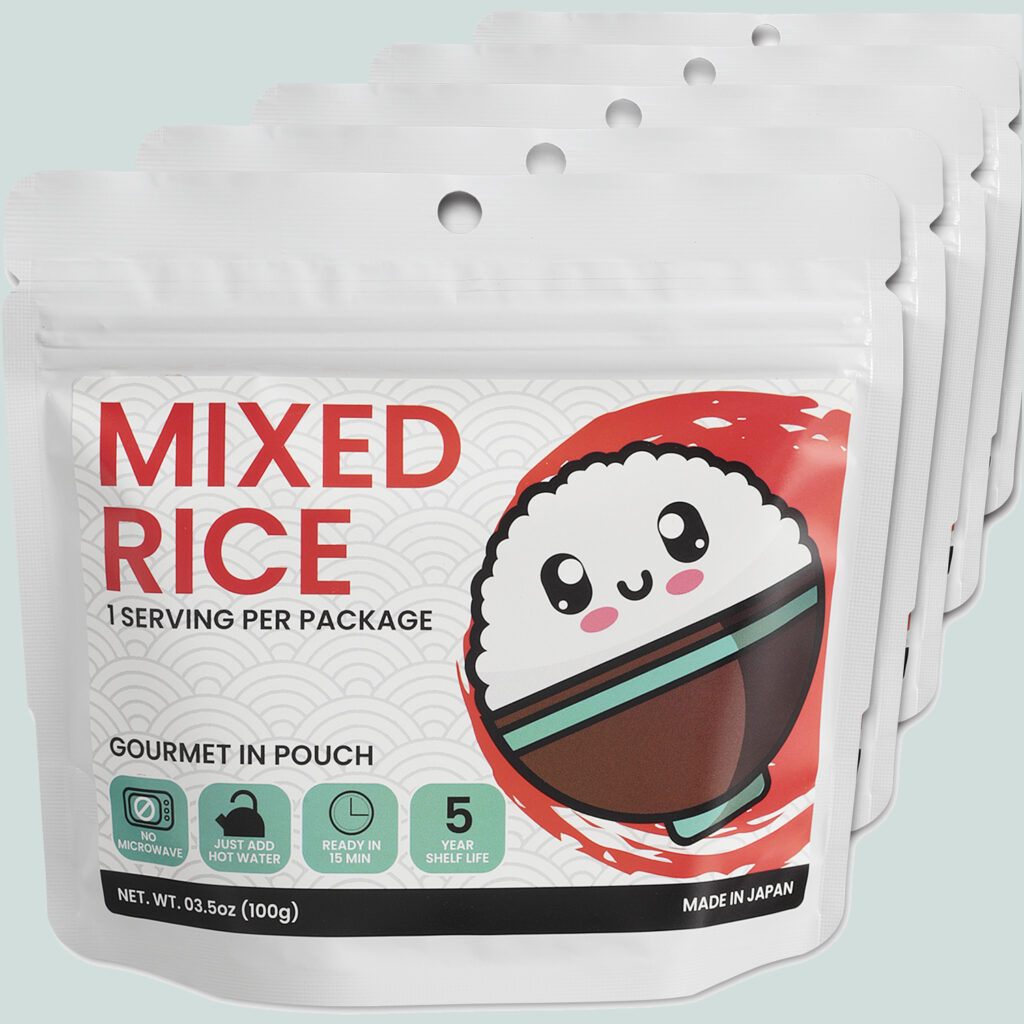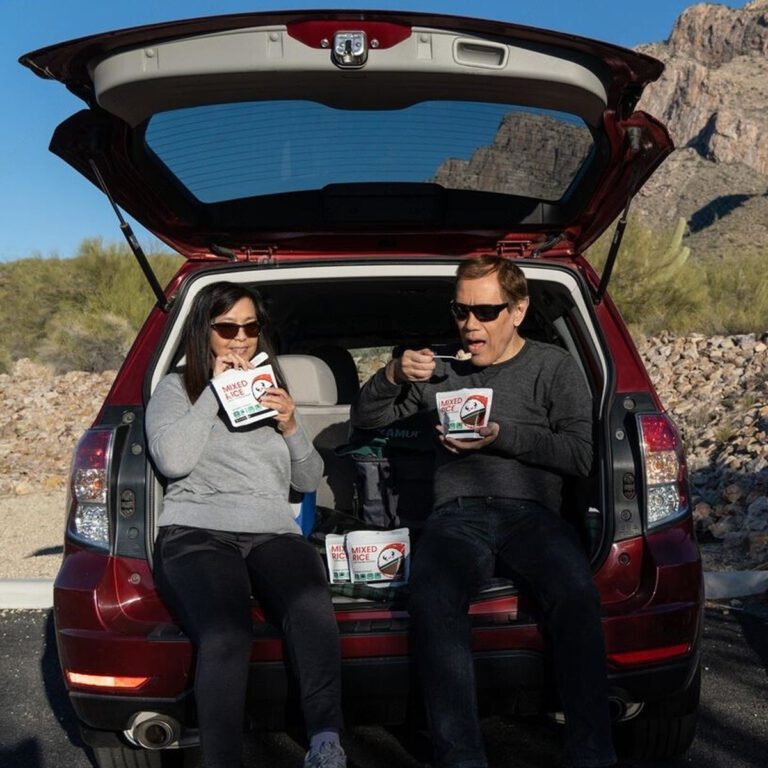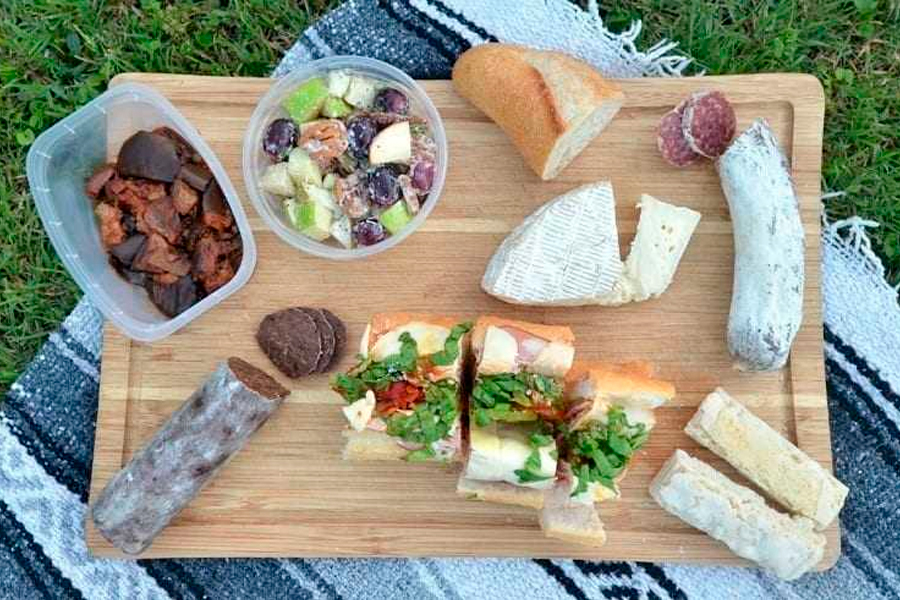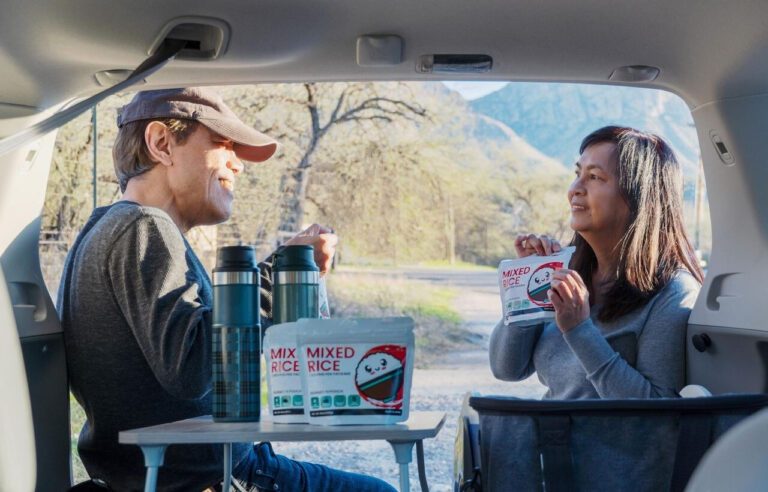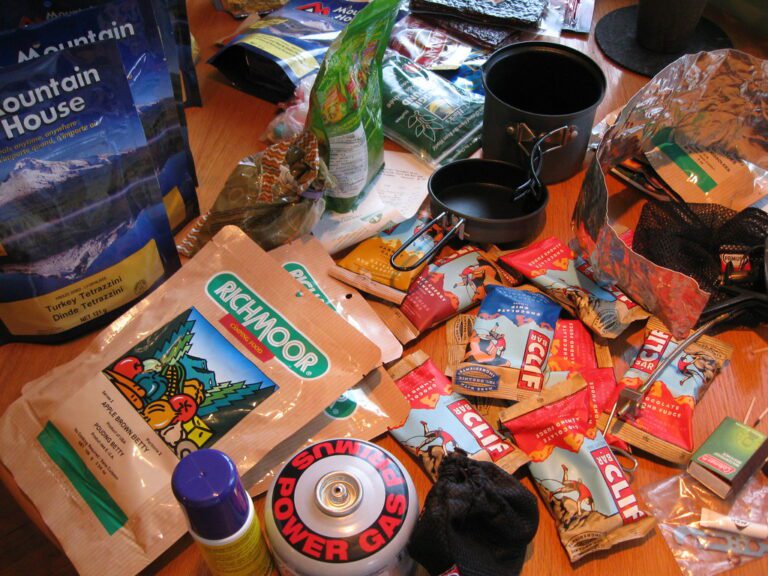Phone
+1-650-666-095
Contact E-mail
[email protected]
Address
16192 Coastal Hwy, Lewes, DE 19958-3608
10 Benefits of Dehydrated Camping Food
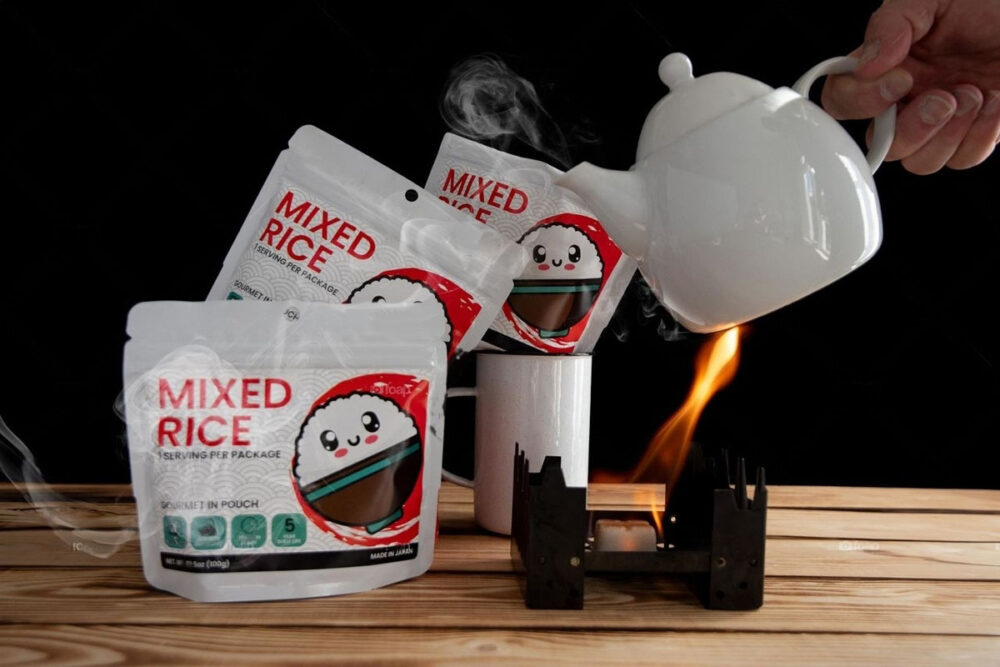

Dehydrated camping food has been an outdoor lovers’ staple for years. With high caloric value, long shelf life, and easy preparation, these backpacking meals have a variety of benefits.
10 Benefits of Dehydrated Camping Food
There are 10 profound benefits of dehydrated camping food. As a nutrient-dense, easy-to-prepare, store, and transport option available at an excellent value, why opt for another style of camp food?
1. Hello Nutrients
The process of dehydrating camping food actually retains the food’s original nutritional value. Calorie, protein, fat, carbohydrate, and fiber content will be the same as the fresh version.
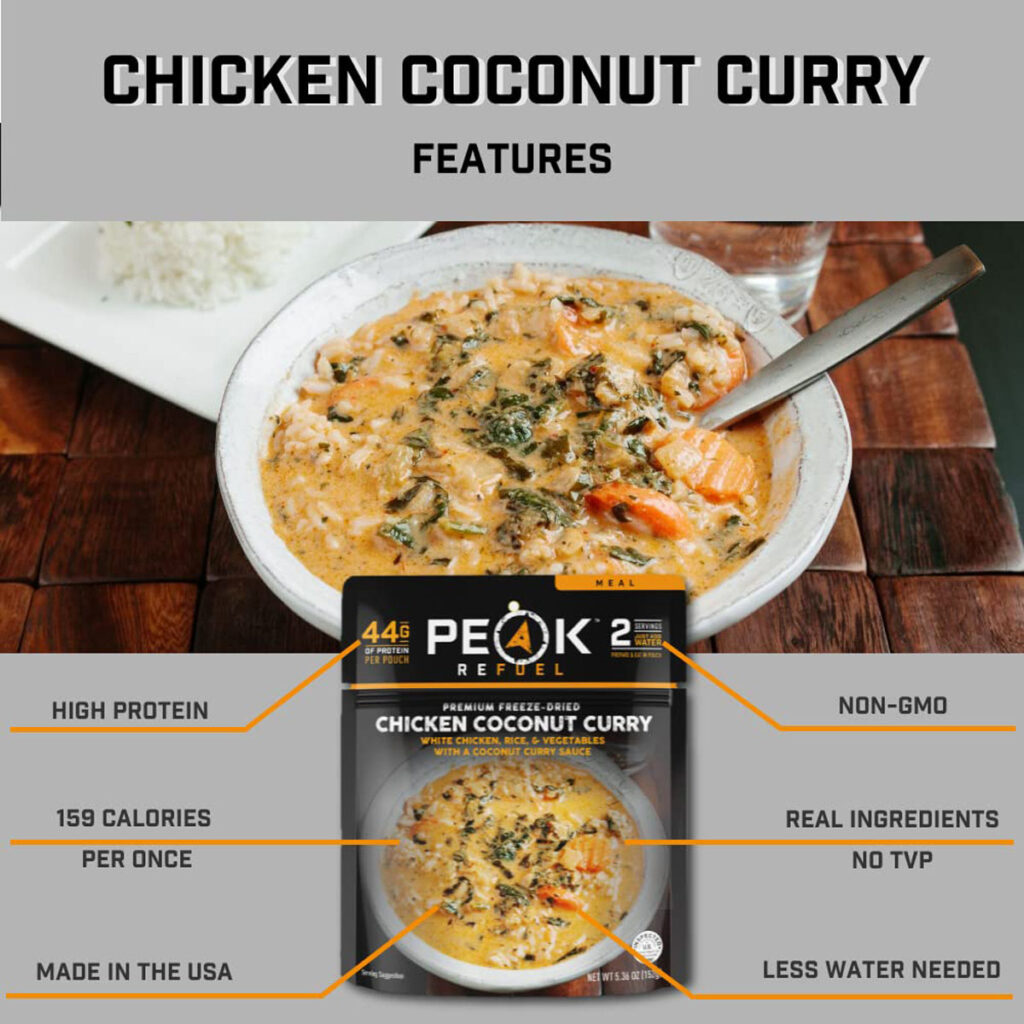

Dehydrated foods maintain their nutritious value for longer than their fresh versions. Whereas some fresh produce will lose up to 50% of its vitamin, mineral, and antioxidant content after a few days in the refrigerator, dehydrated food will maintain its original nutritional value for months.
It is important to note that although most vitamins and minerals remain unchanged through dehydration, vitamins A and C may be reduced. This is minimal when you consider canning or freezing food, which loses 40%-80% of its nutrient profile.
2. Easy to Prepare at Camp
Dehydrated camping food is so easy to prepare at camp. Packages require either cold or hot water to bring your food back to life and some time.
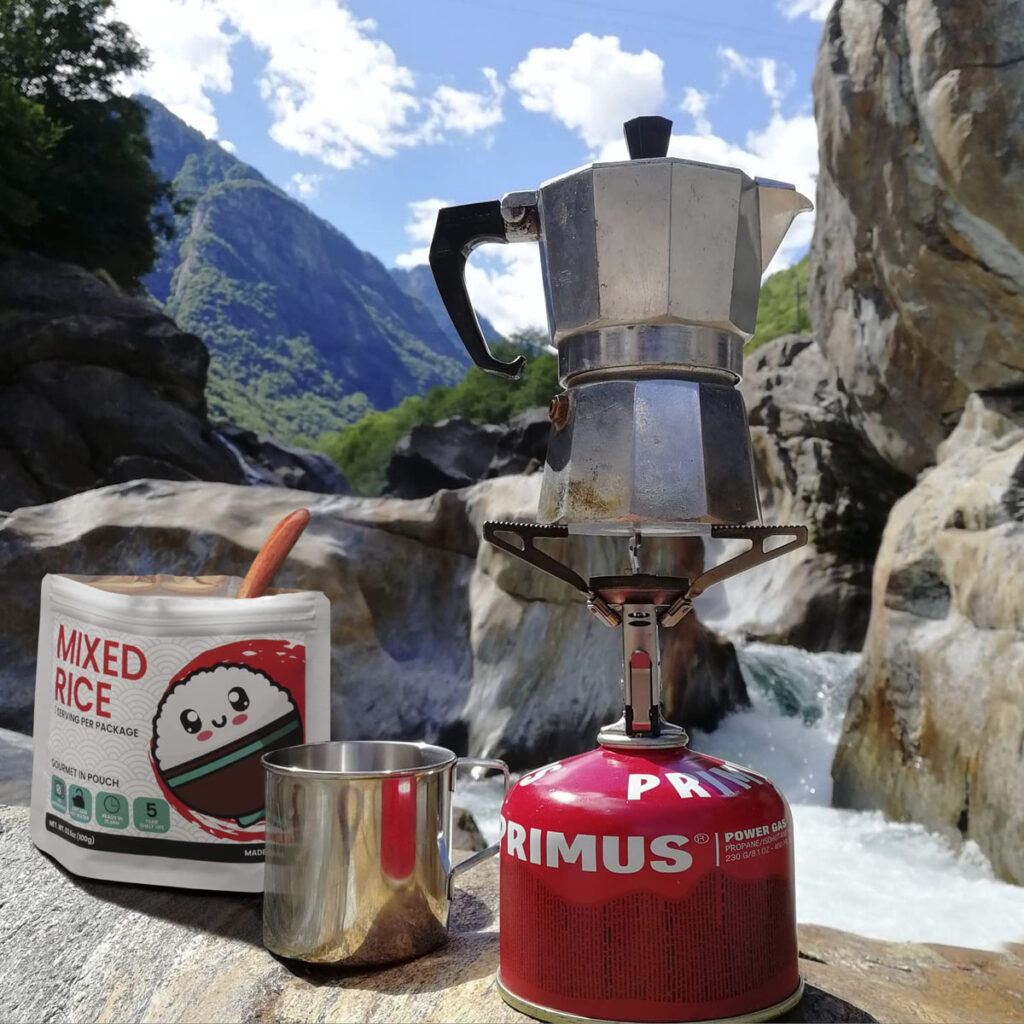

If your meal suggests hot water for rehydrating, you’ll need a way to heat water. This can be done over an open campfire or with a portable camp stove. Camp stoves come in a variety of weights and sizes, making it incredibly easy to bring to your campsite of choice.
Some dehydrated meals require cold water. If your dehydrated meal requires hot water, but you do not have any way to boil water, you can use cold. When cold soaking, you’ll have to double the time your meal would require with the recommended hot water.
3. Excellent Value
Most dehydrated camp meals are an excellent value. You’re receiving a meal full of nutrients for significantly less than what that mean would cost you in a restaurant.
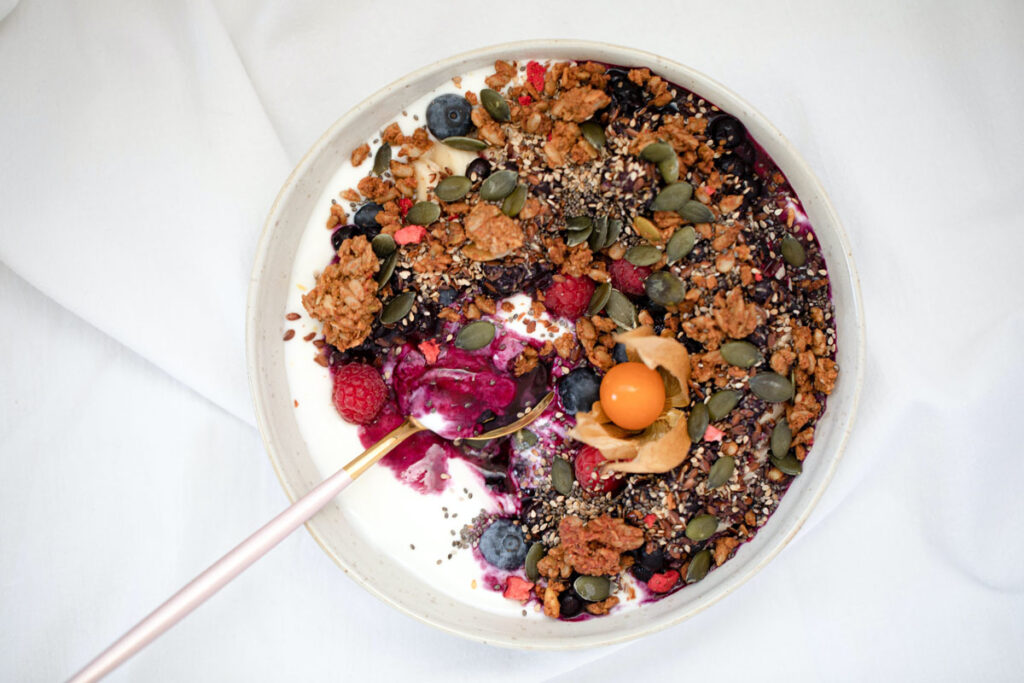

In a completely different sense of the word value, cooking dehydrated camping meals requires very little effort or preparation. If you value your time at camp and/or preparing for your adventure, opting for a backpacking meal is your best bet.
Additionally, many dehydrated camping food packages come in a double serving size. If this is the case, it makes it easy to share this meal with your camping buddy, thus successfully cutting the price of the package in half.
4. Storage
Camping food should be easy to store. Dehydrated food is so simple to store while you’re on the trail and when you’re at home waiting to get outside.
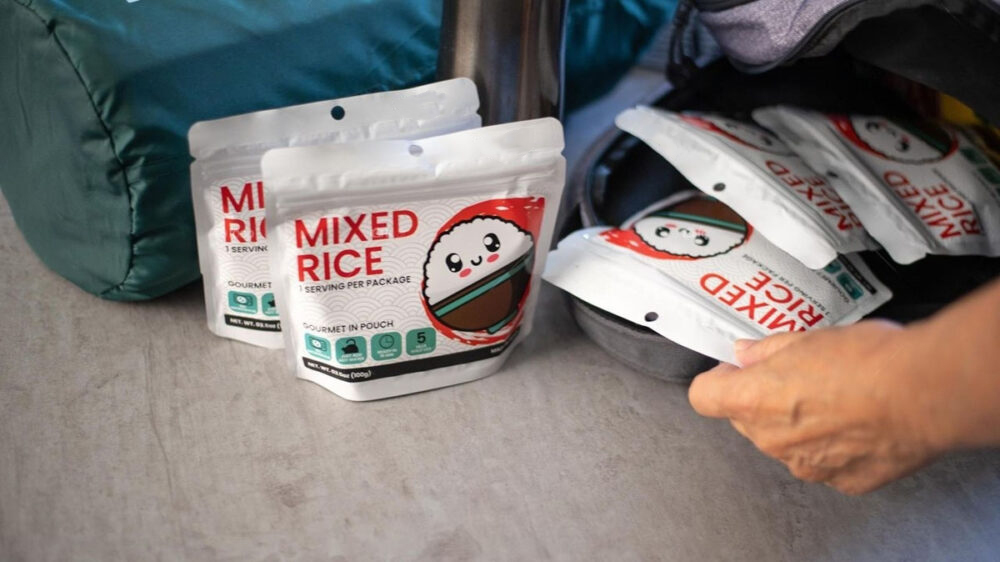

While your dehydrated food is at home, it should be stored in a cool, dry place. This is similar to how the rest of your camping and outdoor gear should be stored. It’s likely that they can be stored together!
Putting your dehydrated camping food bags in a waterproof tote and storing them in a basement or garage that remains cool throughout the year is a simple way to keep your camping meals fresh. Designating a cabinet in your kitchen for backpacking meals would also be a great way to store your dried food.
5. Easy to Pack & Carry
Dehydrated backpacking meals are easy to pack and carry on any camping trip. Because they are in a sealed bag and weigh only a few ounces, they make for easy trail meals.


The sealed bag that your backpacking meal is in is generally pretty flat. Because it cannot spill and lay relatively flat, they’re easy to pack in a tote or backpack depending on the camping you’ll be doing.
When food is dehydrated, it undergoes a 50% reduction in weight as the moisture is removed. Because of this, the weight of the full meal is dramatically reduced. The food will weigh 70%-90% less making it incredibly easy to pack and carry.
6. Long Shelf Life
Commercially prepped and sold dehydrated backpacking meals can last two to thirty years depending on the brand and the meal. If that’s not a long shelf life, we’re not sure what is!
Because water and moisture are the main factors in food decomposition, removing them from the equation means longer shelf life. This process gives dehydrated meals the longest shelf life compared to canning and frozen food.
Freeze-dried food is the only process that outlasts dehydration. It differs in that it uses extremely cold temperatures to remove moisture from the fresh food.
A seemingly small amount of food will leave you full. This is important after a full day of hiking or exploring an outdoor space.
7. Low Risk of Food Born Illness
Bacteria that cause foodborne illness need water to grow. We’ve learned that dehydrated foods are missing moisture, thus making them pretty tough to spoil.
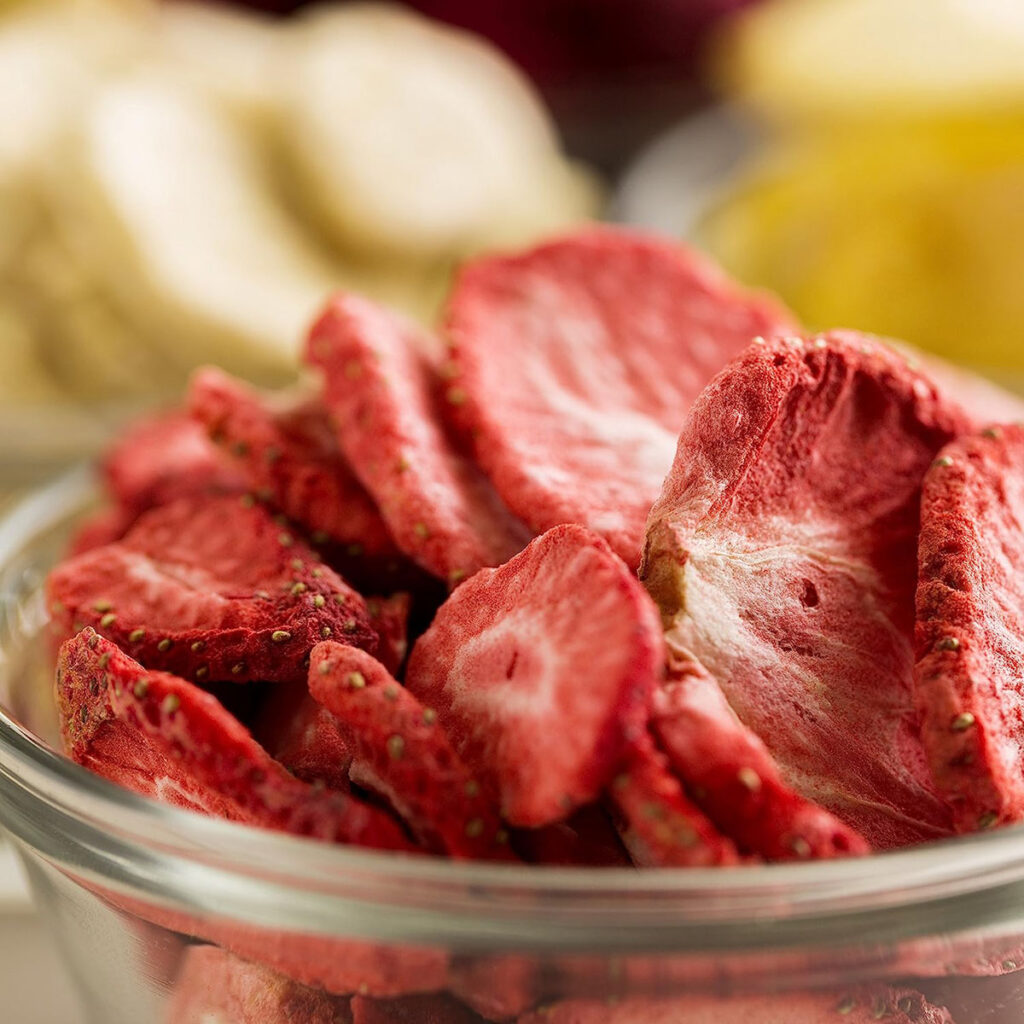

This is especially important when camping. Knowing that you likely don’t have the ability to properly refrigerate many food items, opting for dehydrated meals may be the safest way to enjoy a nutrient-dense meal outdoors.
It is important to note that food not dehydrated properly or in full can still grow microorganisms and cause food-borne illness. Improper storage of dehydrated meals can also cause food-borne contaminants.
8. You Will Be Full
Dehydrated foods have a higher calorie content by weight. This is perfect when camping and backpacking and trying to pack light. You’ll likely replenish the calories and macro-nutrients you’ve used for a day outdoors, leaving you ready for tomorrow’s adventures!
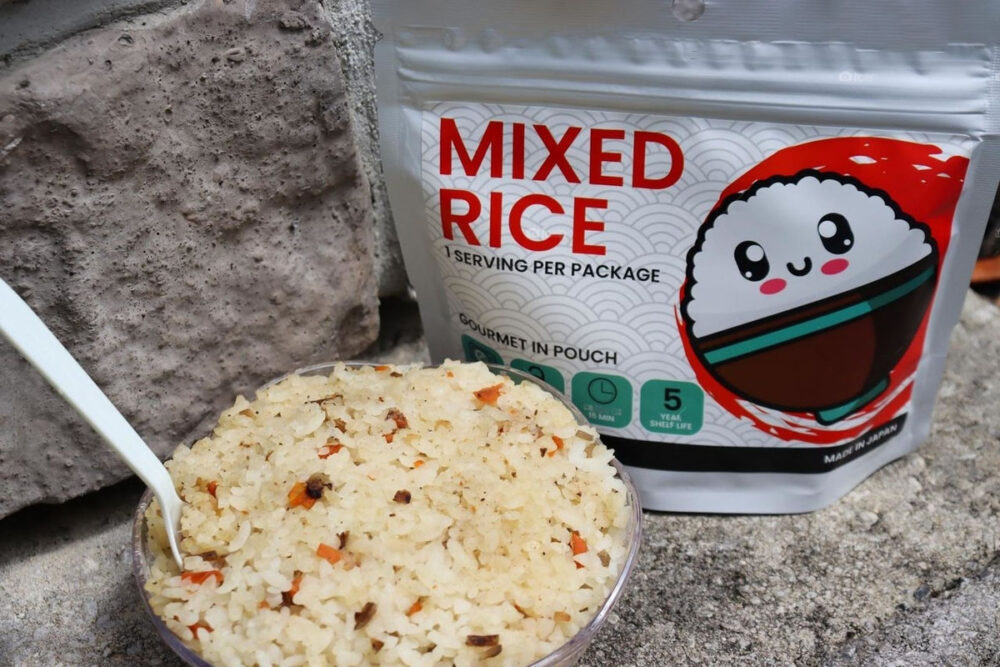

Eating camping food dehydrated regularly may lead to weight gain, increasing the risk of obesity and diabetes. When utilized appropriately as a food source when camping and backpacking, these meals provide the proper amount of satiation without any worry of health risks.
9. Create Less Waste
Utilizing dehydrated camping food will create less food waste on your trip. Less waste, in general, is always positive, but spending time in the wilderness, where you have to pack waste out to the nearest garbage, is even more convenient.


With dehydrated backpacking meals, you don’t need to prepare fresh foods on the trail which keeps you from creating waste that needs to be carried out in the process. The only waste you’ll have is the bag the food was prepared in which makes for an excellent garbage bag for toilet paper.
Preparing and eating your meal in the same bag is a game changer. You don’t need to clean dishes on the trail, so you can pack less overall. Since you no longer need a bowl or a pot to cook food in, your pack weight is less for your next camping trip.
10. Extra Flavorful
There’s no reason you can’t make your taste buds sing while spending time in the woods. Dehydrated camping food is extra flavorful.
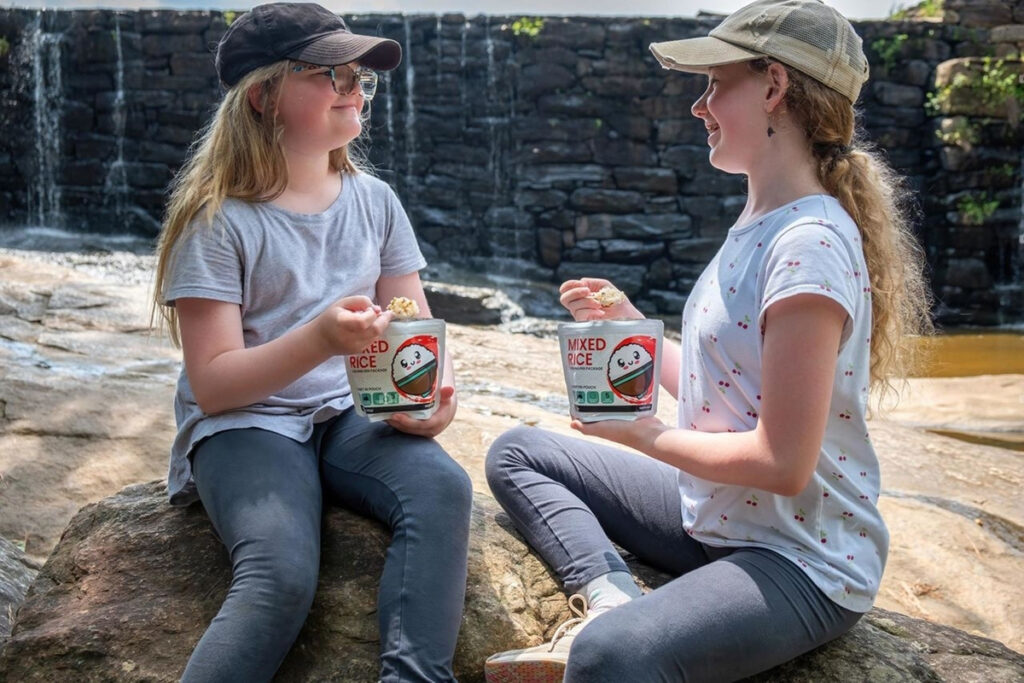

When you remove the water from a food item, it concentrates the flavor. Although the food item’s texture will change drastically, the flavor is actually intensified once it is reheated.
A freeze dried meal is said to hold flavor and texture even better than dehydrated camping meals. They taste great; however, freeze-dried fruits, vegetables, and meats hold their structure and flavor better than dehydrated ones.
5 Ways You Can Use Dehydrated Camping Food
Dehydrated camping food can be used in a variety of different ways. Although most people bring these meals camping, they have many uses.
Backpacking
Dehydrated backpacking meals are the easiest way to eat in the backcountry. Although many adventure-seekers choose to dehydrate their own meals, buying prepacked camping meals remains the easiest and most convenient way to consume a lot of calories and replenish macronutrients while in the wilderness.


If you plan on taking your dehydrated meals on a backpacking trip, buy two and taste-test prior to your trip. You don’t want to be stuck in the backcountry with a meal you can’t stomach and no other option for dinner.
Disaster Preparedness
Due to the shelf life of dehydrated and freeze dried foods they make amazing options for disaster preparedness. To be prepared for all emergencies, one must plan, build a kit, and stay informed. Kits should include water, food, a battery-operated light source, sanitation supplies, and medication.
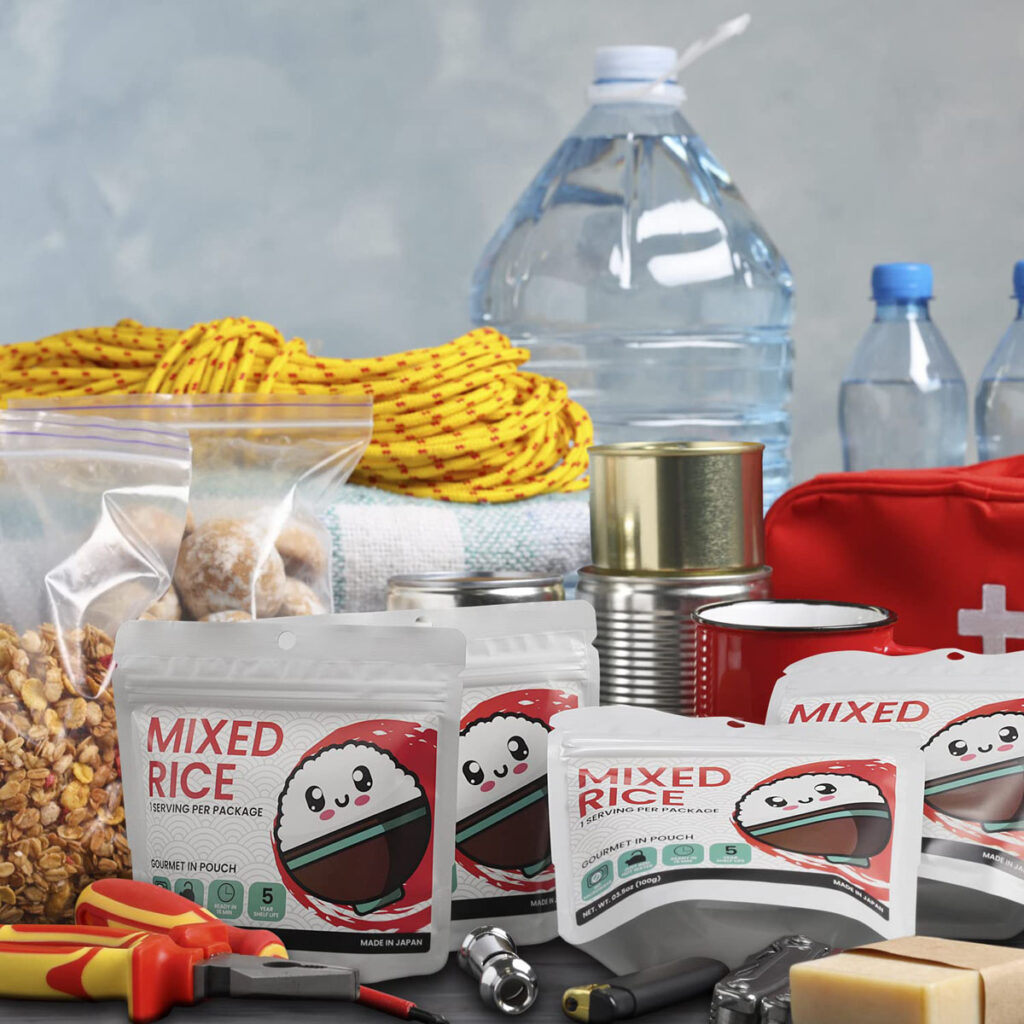

Storing dehydrated camp food in your emergency kit is a great way to ensure you and your family are fed throughout a situation where food might be difficult to come by. You should check the shelf life of each item regularly to replenish any food items that have expired.
Enhance Your Kitchen
If dehydrating your own food is something you’ve thought of in the past, give it a try! It’s a great way to enhance your kitchen. Dehydrate the essentials; herbs, greens, and fruits are always going bad in the refrigerator, so why not dehydrate them for a longer shelf life and bring them back to life when you want to use them?


Prepacked dehydrated meals can also improve your mealtime experience. Whether you need a quick side or a full meal on a time limit, dehydrated camping meals can have a place in our pantries. It’s all about creativity and convenience!
Upgrade your Lunch Box
Expecting a longer day in the office than usual? Do you know you’ll have an extra active day and need a hearty lunch? Dehydrated camping food might be your best answer.
With the simplicity of adding water and letting it sit, dehydrated meals are a great option for enhancing a meal on the go. Save money on not eating out and receive your day’s caloric and nutrient requirements.
Sharing Recipes
If dehydrating your own food is something you’d like to try, then you can use it to share recipes. Dehydrate your favorite dish, write the ingredients on an index card, and then share or gift it to someone you love. They’re bound to love your thoughtful gesture and use your recipe for years.
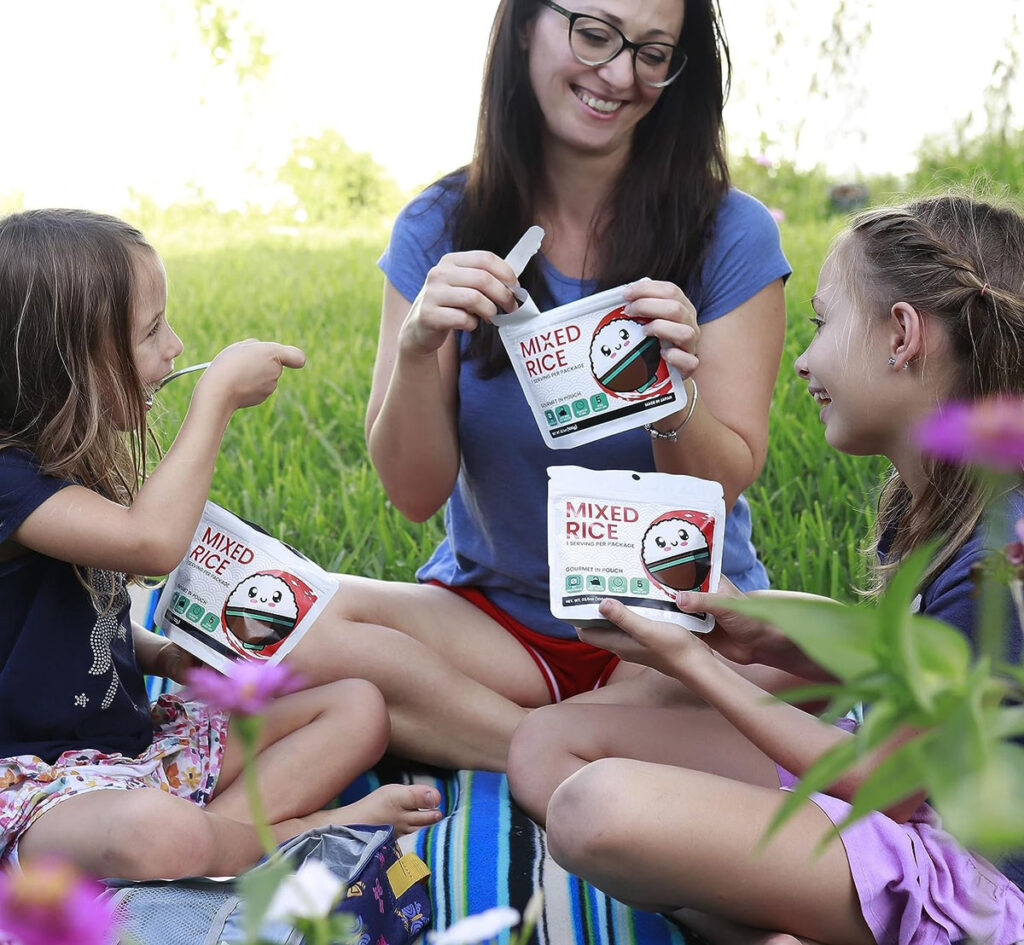

You can also pick up a few recipe hacks from the dehydrated food packages you purchase. Look at the list of ingredients and then create the meal at home from scratch! Your trail favorite might just become a regular in your weekly lineup.
Where Can I Get Dehydrated Camping Food?
A variety of outdoor-focused online and in-person retailers carry various brands of dehydrated camping food. There are vegetarian and vegan versions and dairy-free meals to appeal to outdoorsy folk of all palates. Choose from a variety of dinner options, breakfast favorites, and desserts to suit your adventure needs.
KAMUI offers a delicious mixed rice base that includes carrots, burdock root, konjac, shitake mushrooms, and bamboo shoots. This fluffy rice base is jam-packed with everything you need after a day of hiking. Sodium, fiber, protein, and carbohydrates are necessary macronutrients to properly refuel the body after exercise. Combining KAMUI’s gourmet-in-pouch mixed rice package with your favorite protein source would be a great option after a long day outdoors.
Resources:
- Made with 100% Japanese rice
- Authentic taste of Japanese cuisine
- Tasty freeze-dried meal
- Add hot water. Ready in 15 minutes
